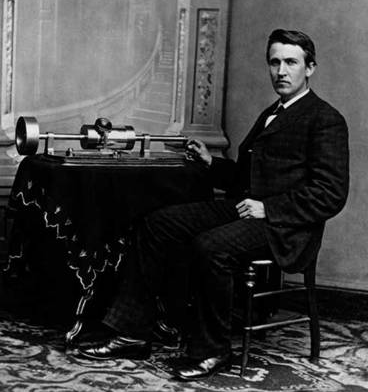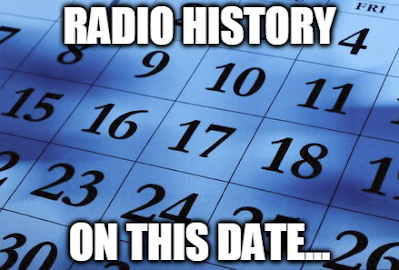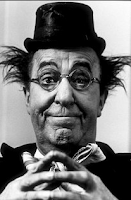➦In 1878...Inventor Thomas Alva Edison got patent for the phonograph. Edison began his career as an inventor in Newark, New Jersey, with the automatic repeater and his other improved telegraphic devices, but the invention that first gained him wider notice was the phonograph in 1877. This accomplishment was so unexpected by the public at large as to appear almost magical. Edison became known as "The Wizard of Menlo Park," New Jersey.
His first phonograph recorded on tinfoil around a grooved cylinder. Despite its limited sound quality and that the recordings could be played only a few times, the phonograph made Edison a celebrity.
Joseph Henry, president of the National Academy of Sciences and one of the most renowned electrical scientists in the US, described Edison as "the most ingenious inventor in this country... or in any other". In April 1878, Edison traveled to Washington to demonstrate the phonograph before the National Academy of Sciences, Congressmen, Senators and US President Hayes. The Washington Post described Edison as a "genius" and his presentation as "a scene... that will live in history". Although Edison obtained a patent for the phonograph in 1878, he did little to develop it until Alexander Graham Bell, Chichester Bell, and Charles Tainter produced a phonograph-like device in the 1880s that used wax-coated cardboard cylinders.
"Mary had a little lamb" were the first words that Edison recorded on the phonograph and he was amazed when he heard the machine play them back to him. In 1878, Edison established the Edison Speaking Phonograph Company to sell the new machine.
 |
| Edison 1878 |
Edison suggested other uses for the phonograph, such as: letter writing and dictation, phonographic books for blind people, a family record (recording family members in their own voices), music boxes and toys, clocks that announce the time, and a connection with the telephone so communications could be recorded. How many of these uses have become a reality today?
Many of the uses Edison suggested for the phonograph have become a reality, but there were others he hadn't imagined. For example, the phonograph allowed soldiers to take music off to war with them. In 1917, when the U.S. became involved in World War I, the Edison Company created a special model of the phonograph for the U.S. Army. This basic machine sold for $60. Many Army units purchased these phonographs because it meant a lot to the soldiers to have music to cheer them and remind them of home. This is an audio clip of Edison himself in which he expresses his pride in the soldiers and reminds Americans of the enormous sacrifice and contribution made by the other allied nations.
➦In 1922...Comedian, Ed Wynn became the first vaudeville star to agree to a radio contract.
In the early 1930s Wynn hosted the popular radio show The Fire Chief, heard in North America on Tuesday nights, sponsored by Texaco gasoline. Like many former vaudeville performers who turned to radio in the same decade, the stage-trained Wynn insisted on playing for a live studio audience, doing each program as an actual stage show, using visual bits to augment his written material, and in his case, wearing a colorful costume with a red fireman's helmet. He usually bounced his gags off announcer/straight man Graham McNamee; Wynn's customary opening, "Tonight, Graham, the show's gonna be different," became one of the most familiar tag-lines of its time; a sample joke: "Graham, my uncle just bought a new second-handed car... he calls it Baby! I don't know, it won't go anyplace without a rattle!"Wynn reprised his Fire Chief radio character in two movies, Follow the Leader (1930) and The Chief (1933). Near the height of his radio fame (1933) he founded his own short-lived radio network the Amalgamated Broadcasting System, which lasted only five weeks, nearly destroying the comedian. According to radio historian Elizabeth McLeod, the failed venture left Wynn deep in debt, divorced and finally, suffering a nervous breakdown.
Wynn died June 19, 1966 in Beverly Hills, California of throat cancer, aged 79.
➦In 1935...the longtime iconic voice of the Seattle Mariners Dave Niehaus was born in Princeton Indiana. For 34 years, from the start of the franchise, he led the M’s play-by-play coverage on radio & TV. He suffered a massive heart attack and died Nov. 10, 2010 at age 75. “My oh my!!”
➦In 1981... George Harrison was ordered to pay ABKCO Music the sum of $587,000 for ‘subconscious plagiarism.’ The court found his song, “My Sweet Lord” was strikingly similar to the Chiffons early 1960s hit, “He’s So Fine.” He claimed to have used the out-of-copyright "Oh Happy Day", a Christian hymn, as his inspiration for the melody.
➦In 2007...the SIRIUS and XM Satellite Radio services announced their intention to merge.














































